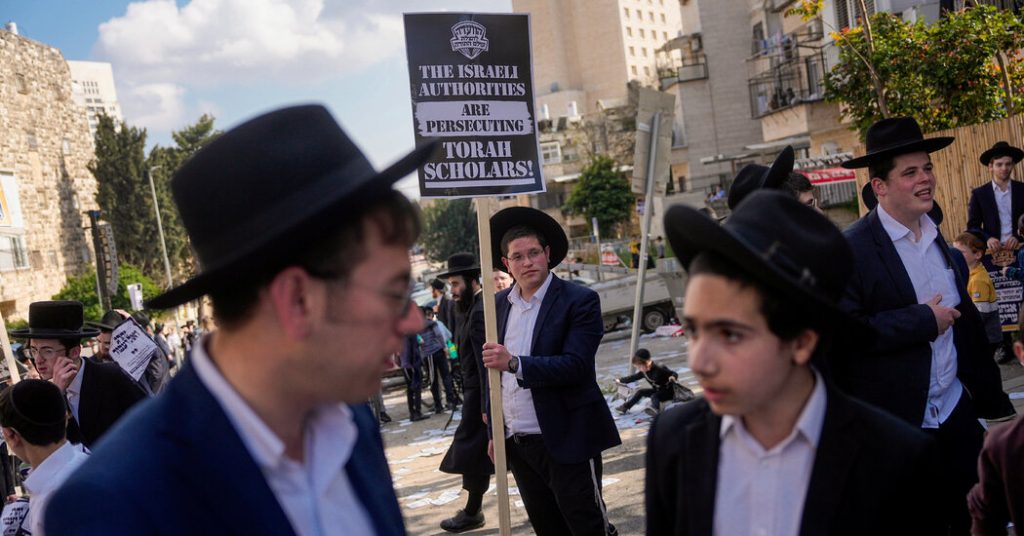Israel’s Supreme Court ruled that the military must begin drafting ultra-Orthodox Jewish men, a decision that could potentially split Prime Minister Benjamin Netanyahu’s coalition government amid the ongoing war in Gaza. This ruling overturned the longstanding exemption that had been given to ultra-Orthodox religious students and mandated that they must now serve in the military like other men of draft age. The issue of the exemption had long been a source of resentment among many Jewish Israelis, especially as the war in Gaza put a strain on the country’s military resources.
The court’s decision highlighted the growing divide between secular Jews and the ultra-Orthodox community, who view their religious studies as being as important and valuable as military service. The ruling also brought to light the political challenges faced by Netanyahu’s coalition government, which relies on the support of ultra-Orthodox parties that oppose the conscription of their constituents. This decision could potentially lead to the collapse of the government and trigger new elections, as both secular members and opposition parties are in favor of ending the exemption.
Previous Supreme Court rulings had called for the exemption to be written into law, but successive Israeli governments had failed to do so over the years. The court’s patience had run out on this matter, leading to the latest ruling that now requires the military to begin conscripting tens of thousands of ultra-Orthodox students. This decision could be met with resistance from the ultra-Orthodox community and pose logistical challenges for the military, as well as creating a significant political obstacle for the government.
To pressure the ultra-Orthodox community to comply with the ruling, the court also suspended government subsidies to religious schools that previously supported the exempted students. This move was seen as a means of compelling the community to accept the court’s judgment and ensure compliance with the new conscription laws. While the ruling may create a rift within Netanyahu’s coalition, the ultra-Orthodox parties may not be eager to bring down the government and could be willing to compromise to preserve their political influence.
The issue of ultra-Orthodox conscription has been a longstanding and contentious one in Israeli society, with the exemption dating back to the country’s founding in 1948. The growth of the ultra-Orthodox population and their political influence has led to mounting frustration over their exemption and perceived lack of contribution to the military and economy. As Israel continues to face security challenges, the draft issue has become a point of contention that reflects broader cultural and political divisions within the country.
The ruling has sparked outrage among ultra-Orthodox politicians, who view military service as a threat to their community’s religious identity. The court’s decision comes at a time when Israel faces multiple security threats, including the ongoing war in Gaza and the potential for conflict on other fronts. As the government grapples with the implications of the ruling and the need for conscription, it must navigate a delicate balance between religious freedoms, national security, and political stability.








